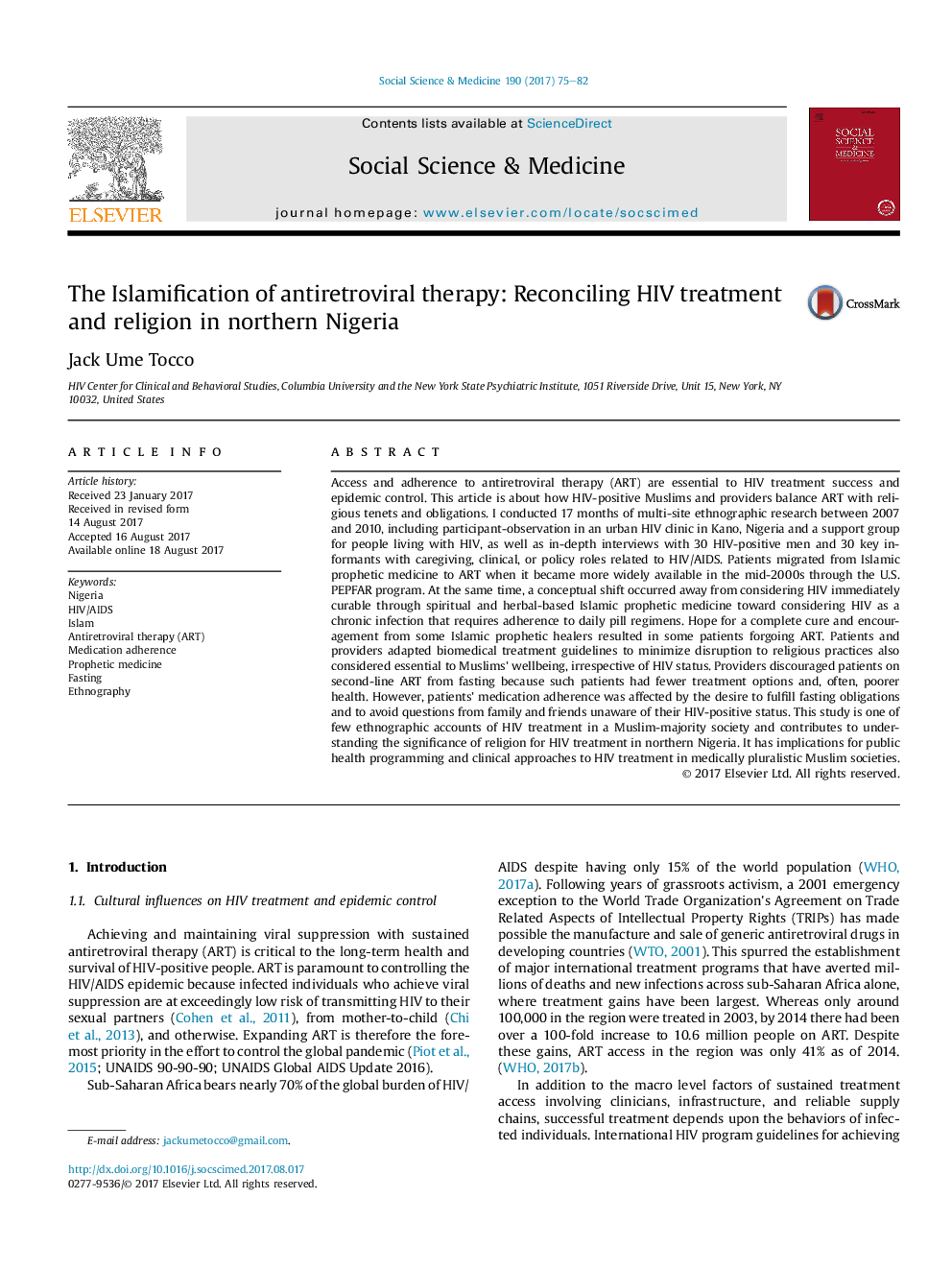| کد مقاله | کد نشریه | سال انتشار | مقاله انگلیسی | نسخه تمام متن |
|---|---|---|---|---|
| 5046320 | 1475979 | 2017 | 8 صفحه PDF | دانلود رایگان |
- Ethnographic account of HIV treatment among Muslims in Kano, Nigeria.
- Antiretrovirals necessitated a shift from understanding HIV as curable to chronic.
- HIVÂ +Â people and providers balance biomedical guidelines with religious obligations.
- Addresses how religious fasting affects HIV treatment adherence.
Access and adherence to antiretroviral therapy (ART) are essential to HIV treatment success and epidemic control. This article is about how HIV-positive Muslims and providers balance ART with religious tenets and obligations. I conducted 17 months of multi-site ethnographic research between 2007 and 2010, including participant-observation in an urban HIV clinic in Kano, Nigeria and a support group for people living with HIV, as well as in-depth interviews with 30 HIV-positive men and 30 key informants with caregiving, clinical, or policy roles related to HIV/AIDS. Patients migrated from Islamic prophetic medicine to ART when it became more widely available in the mid-2000s through the U.S. PEPFAR program. At the same time, a conceptual shift occurred away from considering HIV immediately curable through spiritual and herbal-based Islamic prophetic medicine toward considering HIV as a chronic infection that requires adherence to daily pill regimens. Hope for a complete cure and encouragement from some Islamic prophetic healers resulted in some patients forgoing ART. Patients and providers adapted biomedical treatment guidelines to minimize disruption to religious practices also considered essential to Muslims' wellbeing, irrespective of HIV status. Providers discouraged patients on second-line ART from fasting because such patients had fewer treatment options and, often, poorer health. However, patients' medication adherence was affected by the desire to fulfill fasting obligations and to avoid questions from family and friends unaware of their HIV-positive status. This study is one of few ethnographic accounts of HIV treatment in a Muslim-majority society and contributes to understanding the significance of religion for HIV treatment in northern Nigeria. It has implications for public health programming and clinical approaches to HIV treatment in medically pluralistic Muslim societies.
Journal: Social Science & Medicine - Volume 190, October 2017, Pages 75-82
